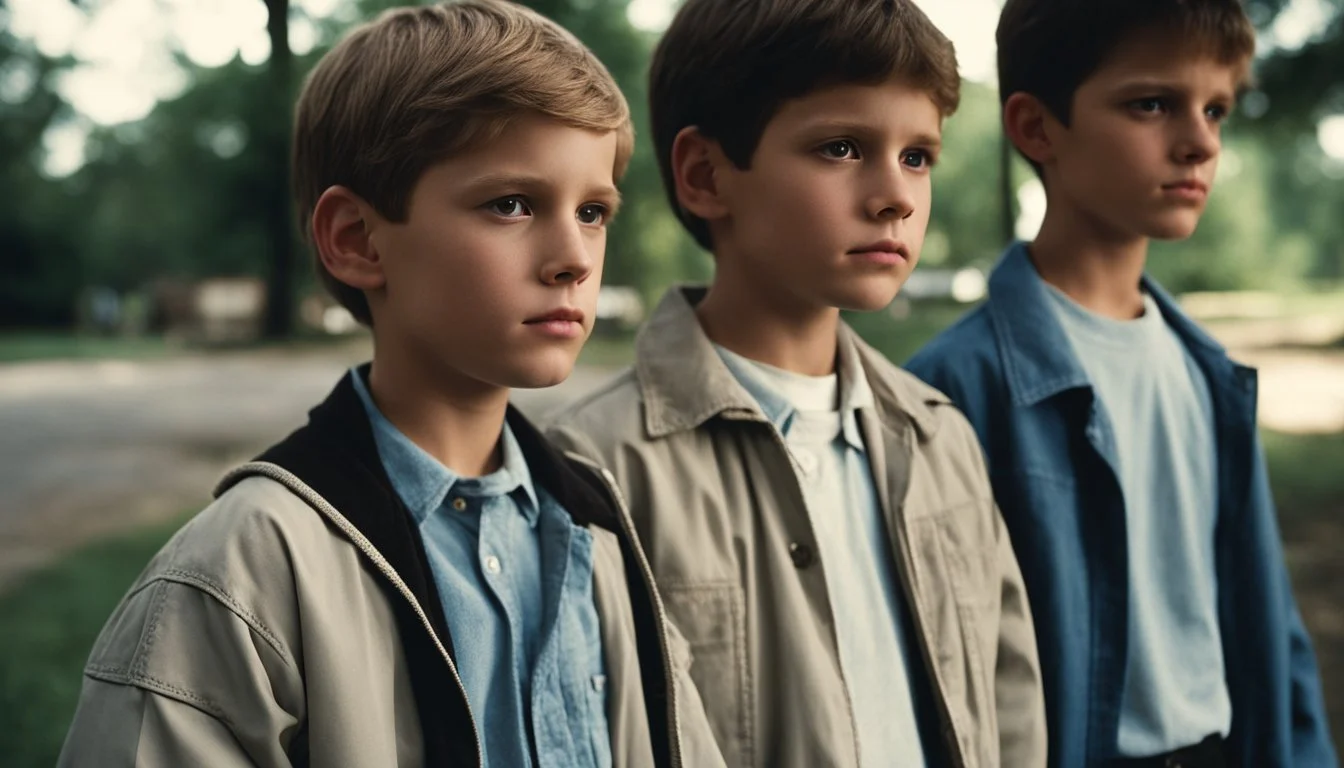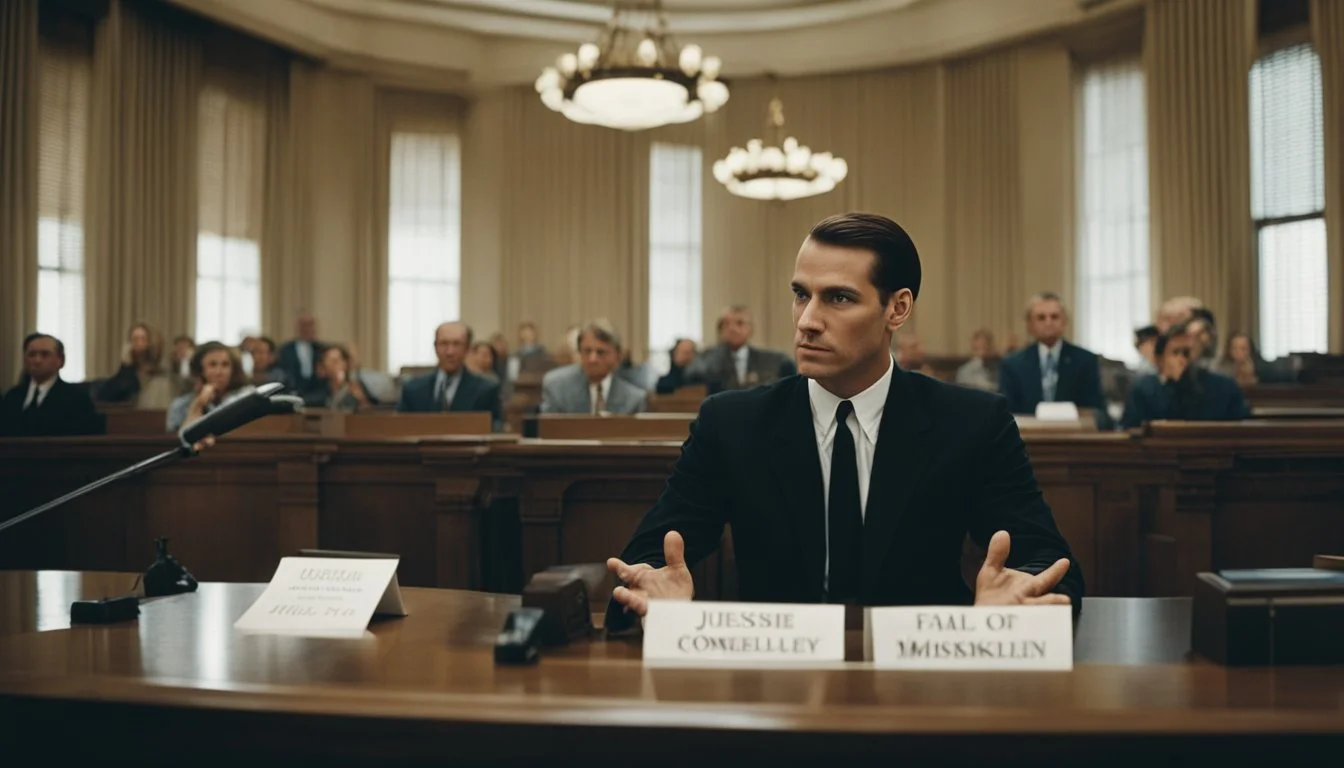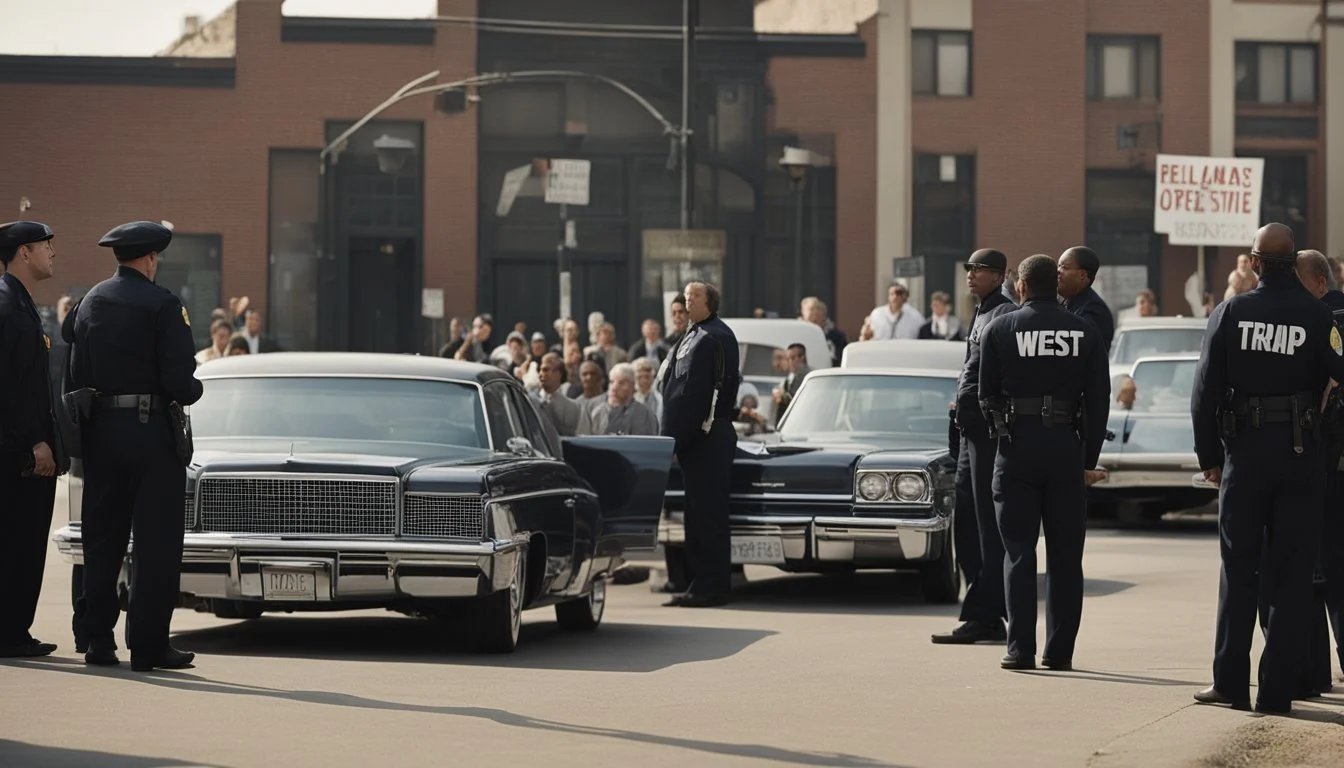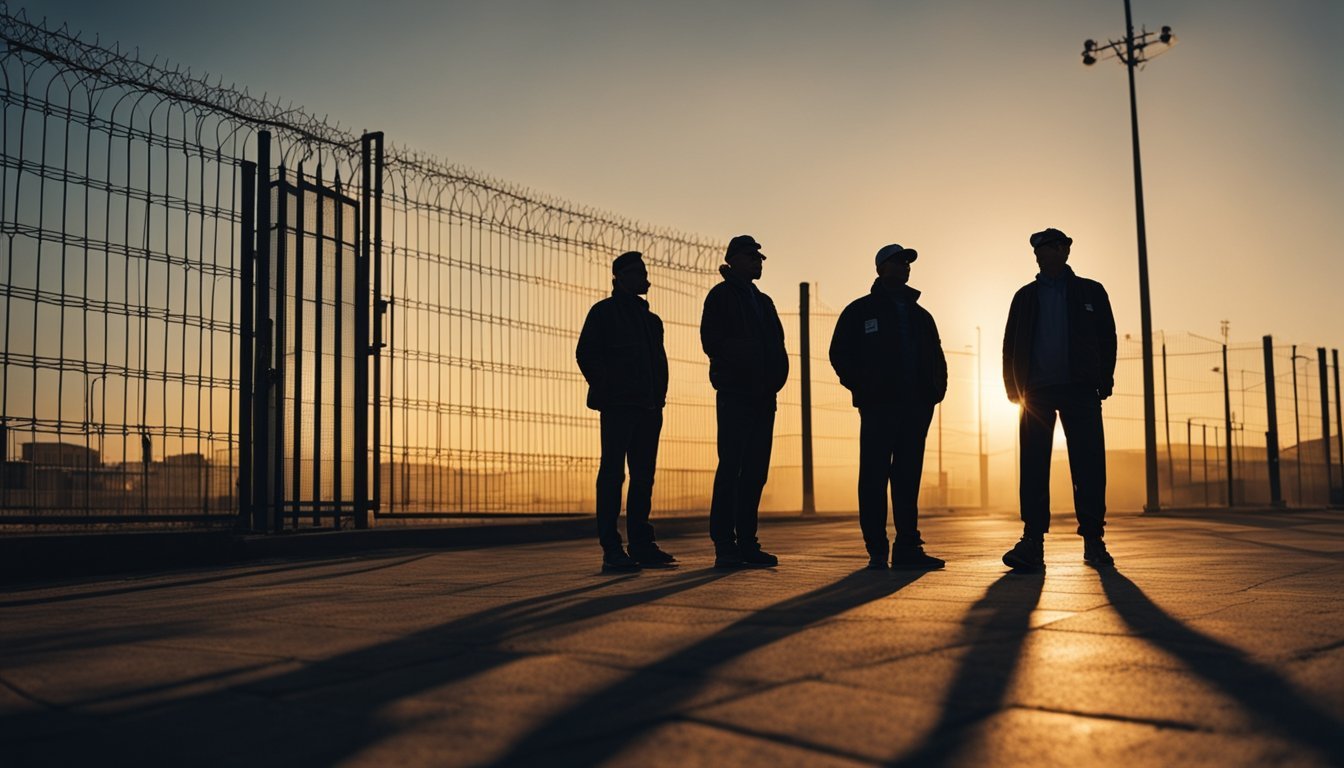West Memphis 3 (2020) Review
Unveiling the Truth Behind the Case
The West Memphis Three is a chilling and controversial case that has captured the attention of the public for nearly three decades. The story begins in 1993, when three young boys were found brutally murdered in a small Arkansas town. The subsequent investigation led to the arrest and conviction of three teenagers, Damien Echols, Jessie Misskelley Jr., and Jason Baldwin. The trio became known as the West Memphis Three. Despite their convictions and years spent incarcerated, substantial doubts remained over whether they were truly the ones responsible for the horrific crimes.
Over the years, the case has been the subject of numerous documentaries and investigative reports, seeking to uncover the truth behind the West Memphis Three. One such documentary, directed by Joe Berlinger and Bruce Sinofsky, "Paradise Lost: The Child Murders at Robin Hood Hills," brought the case to national prominence and sparked a movement to reexamine the evidence. This documentary, along with its sequels, played a significant role in raising awareness about the potential miscarriage of justice and eventually led to the release of the three men in 2011.
The latest and best West Memphis 3 documentary exposes the complexities of the criminal justice system, and the ways in which bias and misinformation can influence the outcome of a case. The documentaries exploring this case offer viewers a powerful and haunting insight into the lives of those involved, the impact of media coverage, and the potential consequences of flawed investigations. As the debate surrounding the West Memphis Three continues, these documentaries remain an essential source of information and a compelling call for further inquiry into the truth behind the chilling events of 1993.
The Case and the Crime Scene
Murders of Three Children
On May 5, 1993, the small town of West Memphis, Arkansas, was shaken by the brutal murders of three eight-year-old boys: Stevie Branch, Christopher Byers, and Michael Moore. Their mutilated bodies were found in a wooded area near a creek, a day after they were reported missing. Autopsies revealed that they had been beaten and tied with their hands and feet bound, and Christopher's death was particularly gruesome as he had been castrated.
Investigation Process
The police quickly focused their investigation on three teenagers: Damien Echols, Jason Baldwin, and Jessie Misskelley Jr. Despite the lack of concrete evidence linking them to the crime, they were singled out due to their interest in the occult and nonconforming lifestyles, leading the police to believe the murders were part of a satanic ritual. The three were arrested on June 3, 1993.
The primary evidence against the teenagers was a confession by Jessie Misskelley Jr., obtained after a 12-hour interrogation without his parents or lawyer present. However, his confession contained numerous inconsistencies and was eventually recanted. Due to the public pressure and the sensational nature of the case, the three teenagers were convicted: Misskelley and Baldwin received life sentences, and Echols was sentenced to death.
The documentary highlights the shortcomings of the investigation, including:
Lack of physical evidence: No blood, fingerprints, or DNA from the accused were found at the crime scene.
Tunnel vision: The police focused exclusively on the three teenagers, ignoring other potential suspects.
Contaminated crime scene: The crime scene was not properly secured, leading to the loss of key evidence.
Use of questionable witnesses: Several witnesses provided inconsistent or false testimonies during the trials.
Despite these flaws, the West Memphis 3 remained in prison for 18 years, until new DNA evidence exonerated them in 2011. They were released after entering Alford pleas, a legal maneuver that allows defendants to maintain their innocence while acknowledging that there is enough evidence to convict them.
The West Memphis 3
Accused and Convicted
So, is it true the West Memphis 3 are guilty? A group of teenagers - Damien Echols, Jason Baldwin, and Jessie Misskelley were accused and convicted of the murder of three eight-year-old boys in West Memphis, Arkansas, in 1993. The brutal crime scene and lack of concrete evidence led to widespread speculation about the motive and the guilt of the accused. The trial was highly publicized, with the teenagers being portrayed as satanic cult members.
The prosecution argued that the murders were part of a satanic ritual, but the physical evidence was weak. Despite the flawed case, all three were found guilty. Echols received the death penalty, while Baldwin and Misskelley were sentenced to life in prison.
The Support Movement
As the case gained national attention, a support movement advocating for the innocence of the West Memphis 3 began to grow. Key inconsistencies and the lack of physical evidence raised doubts about the fairness of the trial. The possibility of a coerced confession from Misskelley, who had a low IQ, added to the skepticism.
Documentaries like Paradise Lost and West of Memphis played a significant role in garnering support for their release. Celebrities such as Eddie Vedder, Henry Rollins, and Johnny Depp also joined the cause, organizing fundraisers and publicly advocating for their freedom.
In 2011, after years of appeals, new forensic evidence, and the support of the movement, the West Memphis 3 were released from prison after entering an Alford plea. This allowed them to maintain their innocence while acknowledging that the prosecution had enough evidence to convict them. The case remains unsolved, and the real killer has never been found.
Trial and Evidence
False Confession
During the trial of the West Memphis Three, one of the accused, Jessie Misskelley, provided a confession to the police. However, this confession was later determined to be false and coerced. The circumstances surrounding the confession raised several concerns, as Misskelley has a low IQ and was interrogated for hours without an attorney or guardian present. Furthermore, the details of his confession were inconsistent with the facts of the case, leading many to question its validity.
Insufficient Evidence
The prosecution in the West Memphis Three trial relied heavily on the testimony of supposed "occult experts" and the alleged involvement of the accused in satanic rituals. However, no real evidence was presented to substantiate these claims. The physical evidence linking the accused to the crime scene was also scarce and circumstantial. Some key pieces of evidence against the three included:
The fibers found at the crime scene, which were later determined not to match clothing or belongings of the accused
The alleged "satanic ritual" items found in the homes of the accused, which were in reality mundane items such as books and posters
Overall, the evidence presented at trial was not sufficient to definitively connect the West Memphis Three to the murders, and their eventual release from prison was due in large part to the recognition of these discrepancies.
Public Impact and Influences
Media Attention
The West Memphis 3 documentary had a significant impact on public opinion, as it brought nationwide attention to the case. The media played a crucial role in raising awareness about the controversial trial, shining a light on the questionable evidence and potential miscarriages of justice. The documentary not only captivated audiences, but also spurred investigative journalists to dig deeper into the case, uncovering new information and questioning the integrity of the original investigation.
Celebrity Endorsements
In addition to the media attention, the West Memphis 3 documentary attracted a number of high-profile celebrities who took up the cause of the wrongfully convicted men. Actors like Johnny Depp and musicians like Eddie Vedder of Pearl Jam and Henry Rollins became outspoken advocates for the three men, using their platforms to increase awareness and garner support for their release. The involvement of these celebrities in the case helped bring even more attention and resources to the cause, culminating in the eventual release of the West Memphis 3 in 2011.
Films and Documentaries
Paradise Lost Series
The Paradise Lost series consists of three documentaries that follow the trial and conviction of the West Memphis Three. Directed by Joe Berlinger and Bruce Sinofsky, the films provide a detailed account of the events surrounding the murders of three young boys and the subsequent arrest and trial of the accused.
The first installment, Paradise Lost: The Child Murders at Robin Hood Hills (1996), introduced the story to the public, revealing the gruesome crime details and the questionable evidence presented in the trial. Featuring interviews with the accused, their families, and the victims' families, the documentary left viewers questioning the justice system.
Paradise Lost 2: Revelations (2000), the second installment, explored new developments in the case, including the discovery of previously overlooked evidence and the emergence of potential alternative suspects. This sequel further highlighted the doubts surrounding the initial trial, raising questions about the fairness of the convictions.
The third and final film, Paradise Lost 3: Purgatory (2011), covered the events leading to the release of the West Memphis Three in 2011, after they entered an Alford plea. The documentary explored the extensive efforts made by supporters in seeking a retrial and new evidence that pointed towards other possible perpetrators.
West of Memphis
West of Memphis (2012) is another significant documentary about the case, produced by Peter Jackson and Fran Walsh, and directed by Amy Berg. This film, which received widespread acclaim, examined the entire story of the West Memphis Three, focusing on the flaws in the initial investigation and the diligence of supporters who fought for their release.
The film presented new forensic evidence that discredits the prosecution's arguments, and highlighted witness testimony that contradicted the original claims. Additionally, West of Memphis explored alternative suspects, presenting a more comprehensive picture of the case and its complexities.
Both the Paradise Lost series and West of Memphis have contributed significantly to raising awareness about the West Memphis Three case, offering viewers compelling insight into the injustices faced by the accused, as well as the unwavering dedication of their supporters in seeking truth and justice.
The Release and Aftermath
Alford Plea
In 2011, the West Memphis Three were released from prison after entering an Alford plea. This type of plea allows defendants to maintain their innocence while acknowledging that the prosecution has enough evidence to potentially secure a conviction. As part of the agreement, the three men were sentenced to time served and given a suspended imposition of sentence for 10 years.
The Alford plea was a controversial decision, as it allowed the men to be released but also prevented the possibility of a retrial in which they could be fully exonerated.
Current Status
Since their release, the members of the West Memphis Three have worked to rebuild their lives. Damien Echols, who was on death row, moved to New York and married a woman who had been advocating for his release. He has since written books and given numerous interviews about his experience on death row and his views on the justice system.
Jason Baldwin, also released, has dedicated his life to helping others who have been wrongfully convicted. He co-founded a nonprofit called Proclaim Justice, which works to provide support and resources to individuals facing wrongful convictions.
Lastly, Jessie Misskelley, after being released, mostly kept a low profile, living in Arkansas and working various jobs to support himself. The West Memphis Three continue to maintain their innocence and hope that the true perpetrators of the crimes will be brought to justice.
Conclusion
The West Memphis 3 movie has been a powerful force in raising public awareness about the erroneous convictions of Damien Echols, Jason Baldwin, and Jessie Misskelley. Through its compelling narrative and investigative approach, the series has shed light on the flaws within the American justice system, specifically regarding the handling of evidence, interrogation techniques, and public opinion influence.
The documentaries presented crucial facts about the case, such as the lack of physical evidence linking the accused to the crime scene, dubious confessions, and the influence of sensationalist media coverage. By highlighting these aspects, the series has not only contributed to the eventual release of the West Memphis Three but also encouraged a broader reflection on the importance of fair and impartial trials.
It is essential to consider the wider impact of the documentary series within the context of true crime media and its role in influencing public discourse. By maintaining a confident, knowledgeable, neutral, and clear tone, the West Memphis Three documentaries have been able to spark conversation and promote a deeper understanding of the case. This approach has undoubtedly contributed to the growing movement for criminal justice reform in the United States.
In conclusion, the West Memphis Three documentary series has been a vital piece of investigative journalism, providing an in-depth analysis of a complex and controversial case. It has not only given a voice to those who were wrongfully convicted but has also raised important questions about the principles of the American justice system and the potential consequences of failing to adhere to them.








